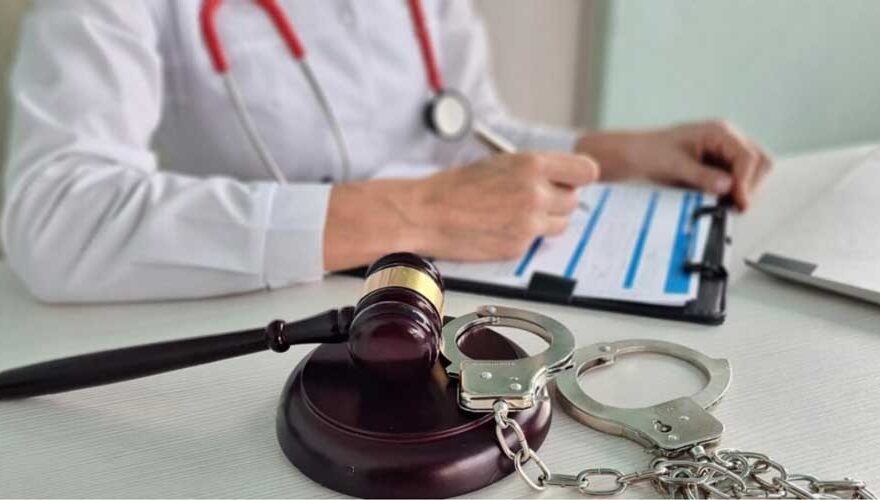Navigating the Legal Road After a DUI Arrest

A DUI charge can be one of the most disruptive legal challenges a person faces. It doesn’t just affect the immediate ability to drive—it can lead to criminal penalties, financial strain, employment consequences, and long-lasting impacts on a person’s record. For many individuals, being pulled over and arrested for driving under the influence is their first serious encounter with the legal system. The process is often fast-moving, confusing, and intimidating, especially with deadlines for license hearings and court dates quickly approaching. Understanding a DUI lawyer’s role can make a significant difference in how the case unfolds and the long-term outcomes.
How legal defense affects DUI case outcomes
- Analyzing the Circumstances of the Traffic Stop
The first area of focus in a DUI case is often the legality and details of the traffic stop itself. Law enforcement must have a valid reason to pull over a vehicle, whether it’s a moving violation, equipment issue, or erratic driving behavior. If a stop was conducted without probable cause or if there were procedural violations during the arrest, it could significantly affect how the case progresses. The accuracy and reliability of field sobriety tests, breathalyzers, and officer observations are all subject to scrutiny in court. A DUI lawyer examines whether the traffic stop complied with constitutional standards and whether any rights were violated. Sometimes, a case can be dismissed entirely due to these procedural issues. For those seeking representation in Georgia, a Marietta DUI lawyer can help interpret local enforcement practices and challenge questionable procedures used by arresting officers. This early stage of defense can dramatically alter the direction of a DUI case if errors are uncovered.
- Evaluating Testing and Evidence Integrity
One of the most technical parts of a DUI case involves analyzing the tests used to determine a driver’s impairment level. Breathalyzer machines, for example, must be adequately maintained, calibrated, and used by trained personnel to ensure valid results. Any deviation from protocol can lead to unreliable readings. Similarly, blood tests are subject to strict chain-of-custody rules, and even minor handling errors can lead to contamination or inaccurate results. Beyond test results, body camera footage, dashboard recordings, and witness statements all contribute to the overall picture of what happened during the stop and arrest. To identify inconsistencies, a defense attorney will compare the officer’s report with video evidence and testing records. Mistakes in evidence gathering can result in reduced charges or the exclusion of key elements from the prosecution’s case. The ability to interpret and question scientific data, rather than accept it at face value, becomes essential in creating a strong defense strategy.
- Negotiating with Prosecutors for Better Outcomes
Not every DUI case proceeds to trial. In many instances, attorneys work with prosecutors to reach an agreement that reduces the impact of the charges on their client’s life. Plea negotiations can result in amended charges, lower fines, shorter license suspensions, or enrollment in diversion programs instead of jail time. These conversations require a clear understanding of the strengths and weaknesses of the case, as well as the client’s background, prior record, and willingness to comply with court-ordered programs. Lawyers act as a buffer between the defendant and the legal system, helping to avoid the emotional pitfalls of negotiating alone. They also ensure that clients understand a plea deal’s terms before deciding. Timing is essential too—knowing when to accept an offer or continue pursuing a dismissal can greatly influence the final result. An effective negotiation balances the realities of the courtroom with the client’s desire to protect their record and personal life.
- Addressing Administrative License Hearings
In addition to the criminal process, a DUI arrest often triggers an administrative procedure regarding the individual’s driver’s license. This is separate from the court case and involves a hearing with the state’s motor vehicle agency. In many jurisdictions, the driver has a limited window—sometimes only ten to thirty days—to request a hearing to contest the automatic suspension. Missing this deadline can result in losing driving privileges, regardless of what happens in court. Legal representation during this process is critical. The hearing may involve questioning the arresting officer, reviewing breath test results, and making legal arguments about whether the suspension should stand. While winning the administrative hearing doesn’t guarantee success in criminal court, it does allow the individual to continue driving during the case and avoids complications with work or family obligations. Legal and procedural support during this phase can greatly improve the individual’s ability to maintain normalcy while the case is pending.
- Minimizing Long-Term Consequences of a DUI Conviction
The impact of a DUI conviction extends far beyond the courtroom. It can affect job applications, housing opportunities, insurance rates, and professional licensing. A first offense can lead to mandatory education courses, community service, ignition interlock devices, and other ongoing obligations. Repeat offenses bring even harsher penalties, including longer license suspensions and possible jail time. For students or immigrants, the consequences can also affect academic standing or immigration status. Legal defense doesn’t end with the verdict; lawyers often assist clients in complying with all court requirements and exploring expungement or record-sealing options where the law permits. By focusing on both the immediate outcome and future implications, attorneys help clients reduce the long-term damage of a conviction. The goal is to navigate the current legal challenge and ensure that it doesn’t permanently define a person’s future opportunities or quality of life.
Rebuilding After a DUI and Moving Forward
A DUI charge can feel like a major setback, but with proper legal support and a proactive approach, individuals can regain stability and move forward. The legal process is often daunting, with complex rules, deadlines, and emotional stress. A defense lawyer offers more than courtroom advocacy—they provide structure, clarity, and reassurance during a difficult time. From evaluating the initial traffic stop to challenging test results and negotiating with prosecutors, their work impacts every stage of the case. They help people understand their rights, make informed decisions, and build a path toward resolution. With the right guidance, even those facing serious allegations can recover, learn from the experience, and protect their future from further disruption. Legal defense is more than avoiding penalties—it’s about helping people find a fair and manageable way to put the situation behind them and continue living their lives with confidence and hope.


